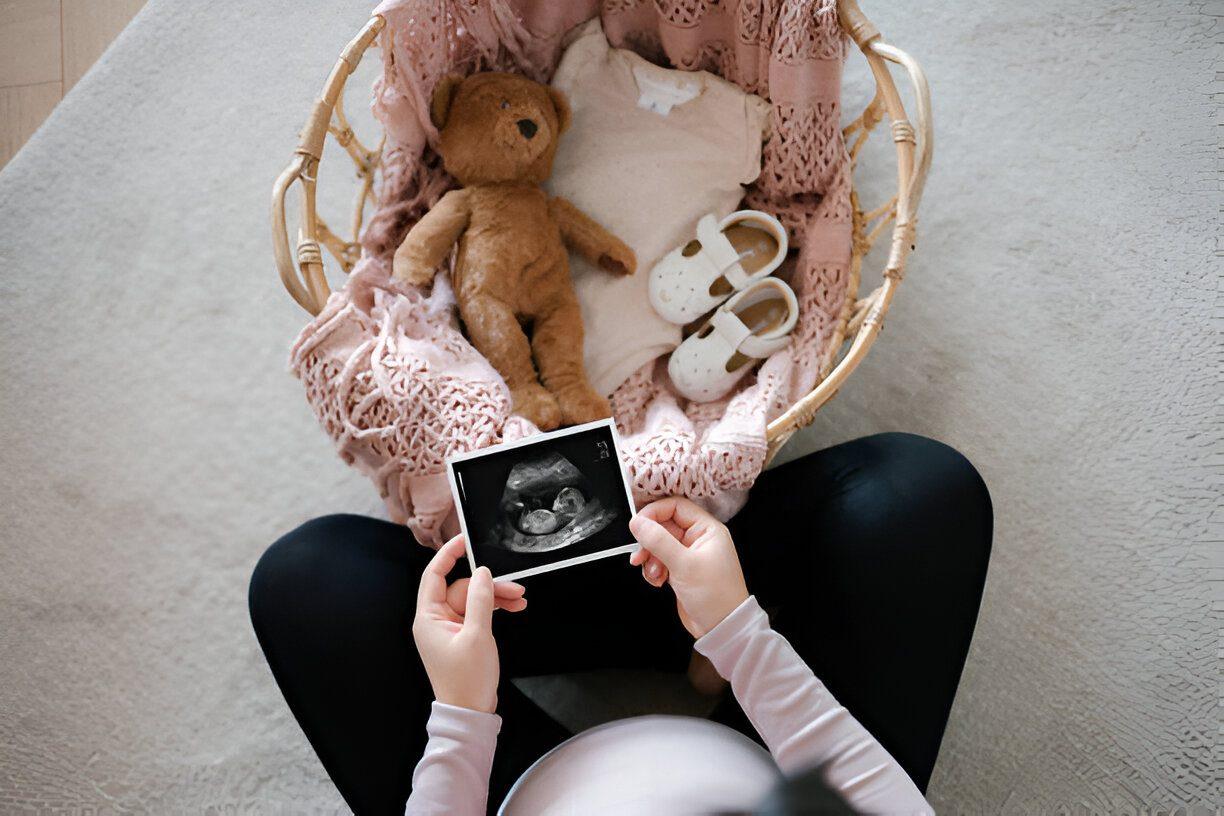Where Quiet Grief Finds a Voice
Pregnancy loss—whether miscarriage, stillbirth, or neonatal death—touches the deepest layers of dreams and identity. While statistics show that 10–15% of known pregnancies end in miscarriage, these numbers can’t capture the immense emotional toll. This guide explores how finding support can transform the silent sorrow of pregnancy loss into a path of healing, remembrance, and renewed hope.
“Naming our baby and lighting a candle on the due date helped us find a gentle way to honor her life, even though it was fleeting.”
When Loss Echoes Beyond Words

A Journey Through Unseen Grief
Pregnancy loss, whether through miscarriage, stillbirth, or neonatal death, is a deeply personal and profound experience that touches the heart of dreams and expectations for the future. While statistics reveal that 10–15% of known pregnancies end in miscarriage, these numbers fail to capture the immense emotional and psychological impact of such a loss. The journey to finding support after pregnancy loss can be fraught with challenges, as societal silence around the topic often isolates those who are grieving. Yet, support is essential, not only for emotional recovery but for rebuilding hope and identity beyond the loss.
The Complex Grief of Pregnancy Loss
Disenfranchised Grief
The grief following pregnancy loss often falls into the category of disenfranchised grief, where the depth of the loss is not fully acknowledged or validated by society. The absence of societal rituals for mourning or public recognition can leave individuals feeling isolated and misunderstood.
Layers of Loss
Pregnancy loss is not just about losing a baby—it is also about losing the imagined future, the plans, and the hopes tied to parenthood. It can trigger emotions ranging from shock and sadness to guilt, anger, and a profound sense of longing.
Sources of Support
-
Medical Support
- The Role of Healthcare Providers: After a pregnancy loss, immediate medical care is critical. Doctors and nurses play a pivotal role in helping individuals understand what happened, which can reduce feelings of confusion or self-blame.
- Bereavement Coordinators: Many hospitals now employ bereavement specialists who provide resources and guidance during this difficult time, offering not only medical follow-up but also emotional support.
- Preparation for Future Pregnancies: Discussing future conception possibilities with a trusted medical professional can help address fears and provide clarity for the road ahead.
-
Mental Health Professionals
- Specialized Grief Therapy: Engaging with therapists who have experience in pregnancy loss can help navigate complex emotions like guilt and anger.
- CBT and Grief Counseling: Cognitive Behavioral Therapy and grief-focused counseling can equip individuals with tools to manage their grief and anxiety, particularly for those considering subsequent pregnancies.
- Group Therapy: Shared experiences through group therapy provide a safe space to connect with others, reducing feelings of isolation and validating grief.
-
Community and Peer Support
- Support Groups: Organizations such as Share Pregnancy & Infant Loss Support or The Compassionate Friends offer community-based support through meetings where individuals can share stories and experiences.
- Online Communities: Digital forums and social media groups provide round-the-clock access to others who understand, offering solidarity and comfort across geographical boundaries.
-
Friends and Family
- Communicating Needs: Loved ones often want to help but may not know how. Expressing specific needs—whether it’s a listening ear, help with household tasks, or simply acknowledgment of the loss—can foster understanding.
- Simple Gestures of Validation: Small actions, like saying the baby’s name or marking milestones such as the due date, can provide immense comfort.
Acts of Remembrance
Rituals for Healing
Memorializing the baby can offer a sense of closure and acknowledgment. Personal or communal acts of remembrance might include:
- Planting a tree or creating a garden.
- Holding a private memorial or ceremony.
- Creating art, writing letters, or journaling.
Keepsakes
Physical keepsakes like ultrasound photos, memorial jewelry, or items of significance can serve as a lasting connection to the baby.
The Importance of Self-Care
Physical and Emotional Recovery
Grieving takes a toll on both the body and mind. Self-care can include rest, nourishing meals, gentle physical activity, or simply giving yourself permission to feel and process emotions at your own pace.
Self-Compassion
It’s essential to practice self-compassion by reminding yourself that grief is not linear and that healing is a deeply personal process. Avoid comparing your journey to others’.
Reengaging with Life
When ready, slowly reintroduce activities that bring you joy or comfort. This could mean engaging in hobbies, reconnecting with friends, or exploring new interests.
“Though unseen, the footprints of a lost child forever rest on your heart.” — Aisha L.
Breaking the Silence
Creating Awareness
Advocacy and openness about pregnancy loss are essential for breaking the silence and stigma. Sharing stories, participating in awareness campaigns, or joining movements like Pregnancy and Infant Loss Awareness Month can help create a culture of understanding and validation.
Encouraging Open Conversations
Encouraging dialogue about pregnancy loss not only supports those who are grieving but educates society, fostering empathy and reducing isolation for future generations.
Things To Try This Week!
- Reach Out to a Support Group: Search for local or online communities dedicated to pregnancy and infant loss. A shared space can provide empathy and validation.
- Create a Personal Ritual: Light a candle, write a letter, or plant a flower in remembrance—an act that acknowledges your emotions and grants symbolic closure.
- Share One Conversation: If comfortable, open up to a friend or family member about your experience—breaking the silence often sparks deeper understanding.
Conclusion
Finding support after pregnancy loss is about navigating a deeply personal journey with the help of a network that addresses emotional, physical, and social needs. Whether through medical professionals, mental health therapy, support groups, or rituals of remembrance, healing comes in many forms. The silence surrounding pregnancy loss can feel overwhelming, but by seeking and offering compassionate support, we can create spaces where grief is validated, stories are shared, and hope is gently nurtured. No one should have to walk this path alone, and every loss deserves acknowledgment, understanding, and love.
The journey after pregnancy loss is a testament to love—love for the little life that was and for the dreams that blossomed alongside it.
Our All Things Cherish collection offers heartfelt keepsakes, reflective ideas, and supportive resources crafted to guide you through acknowledging both the sorrow and the enduring spirit of love. May this gentle care nurture a path toward honoring, healing, and cherishing each step forward.
Honoring Loss, Embracing Gentle Hope
Pregnancy loss can shatter expectations but doesn’t have to dim the light of compassion around you. In our All Things Cherish collection, find thoughtful tokens and kindhearted support to help you and your loved ones navigate this intimate grieving process. Let each gesture remind you that love, in all its forms, endures—guiding you from silent sorrow toward warm, shared understanding.
More Reflections, More Growth
Loss is complex, and the road to healing is different for everyone. These reflections offer insight, support, and guidance as you navigate this journey.
Illuminating the Path: Finding Hope Amid Health Struggles
Hope can be a guiding light during health struggles, offering strength and clarity amidst adversity. Discover practical ways to cultivate resilience and find meaning in life’s toughest challenges.
Becoming You Again: Grieving and Embracing the Self That’s Changed
Grieving the loss of your former self is deeply personal, reflecting the shifts in identity brought by change. Learn strategies to honor your past while embracing your evolving self.
When the Body You Knew Feels Lost
Coping with chronic illness grief means mourning lost abilities while learning to adapt and thrive in a redefined life. Discover tools for emotional healing, acceptance, and personal growth.
When Trust Slips Away: Navigating the Grief of Broken Faith
The loss of trust is a profound grief, altering your view of relationships and the world. This guide explores the emotional impact, the grieving process, and pathways to healing and growth.
When the Bond Breaks: Rebuilding Trust After Betrayal
Rebuilding trust after betrayal requires commitment, transparency, and mutual effort. This guide explores practical steps for both the betrayed and the betrayer to heal, grow, and reconnect.
Daring to Dream Again: Rebuilding Hope After Loss
Building new dreams after loss is a journey of courage and growth. Explore how to honor the past while creating aspirations that reflect your evolving self and potential.
When Hopes Fall Short: Coping with Lost Dreams and Aspirations
The grief of lost dreams runs deep, touching our identity and purpose. Explore how to process this loss, find resilience, and embrace new opportunities for growth.
Letting Go of What Might Have Been: Grieving a Lost Future
Grieving an imagined future is a silent, often unspoken sorrow. This guide explores how to navigate the loss of unfulfilled dreams, embrace resilience, and forge new possibilities.
When Loss Shapes Who We Are: Embracing an Identity Tied to Grief
Loss often becomes a defining thread in the fabric of our identity. This article explores how grief shapes who we are, offering pathways to integrate loss, foster growth, and embrace resilience.
Explore Journeys of Healing and Solace:
Discover dedicated spaces that offer understanding, guidance, and connection through grief. From the loss of loved ones to life’s challenging transitions, each category provides a pathway to reflect, connect, and find peace in shared experiences.


























